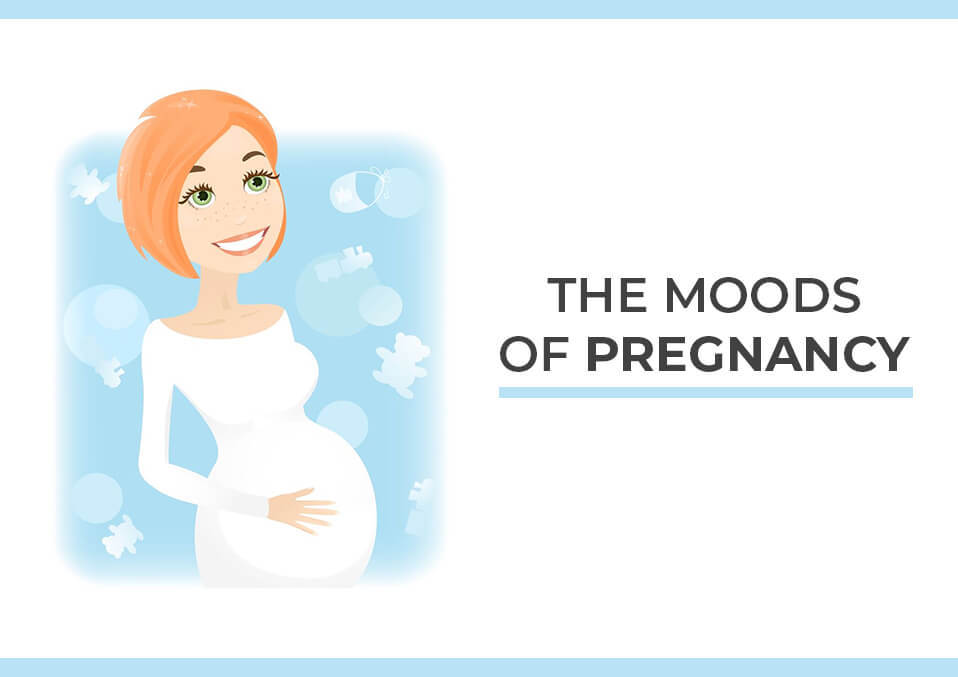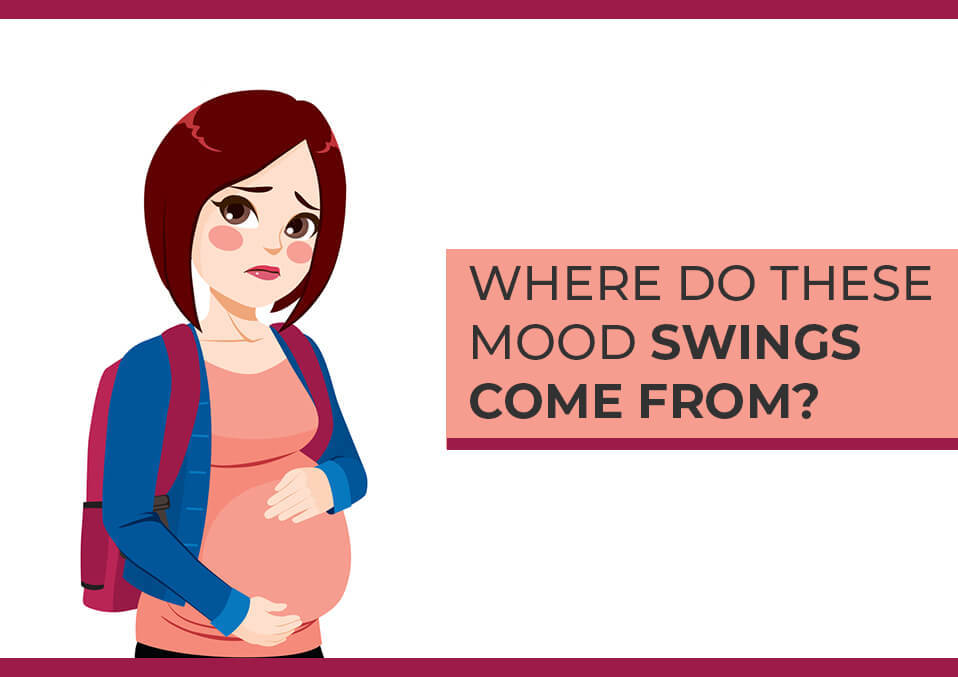From laughter to tears, from the excitement of the arrival of the future baby to the fear of not being able to take good care of it: the future mother is subject to mood swings and emotions.
As is often the case, hormones are not unrelated to this phenomenon.
The Moods Of Pregnancy.
 The panel of emotions of the future mother is wide; and the transition from one emotion to another sometimes very fast ! Jumble.
The panel of emotions of the future mother is wide; and the transition from one emotion to another sometimes very fast ! Jumble.
here are the feelings commonly shared among the moms-to-be:
- the joy, the excitement of being pregnant.
- the pride of bearing life.
- fear of a problem during pregnancy.
- fear of not being a good mother.
- the fear of childbirth.
- a feeling of serenity, fulfillment.
- a feeling of frustration, especially at the end of pregnancy, of not being able to move easily for example, or of coming dependent on one’s partner for certain aspects of daily life.
- irritability.
- some discomfort in the face of changes in the body (especially weight gain).
- a Distracted Mind, a tendency to forget things.
- a certain impatience, especially in late pregnancy.
- exaggerated reactions to external comments (about weight gain, the baby’s first name, the future organization with work, etc.…).
- the fear of losing certain complicity with one’s partner, etc.
Where Do These Mood Swings Come From?
 Pregnancy is accompanied by significant physiological and psychological changes; and these changes can weaken the mother-to-be; whose reactions tend to be exacerbated, changing.
Pregnancy is accompanied by significant physiological and psychological changes; and these changes can weaken the mother-to-be; whose reactions tend to be exacerbated, changing.
The hormonal impregnation of pregnancy accentuates this phenomenon. The significant increase in the level of progesterone and estrogens affects the secretion and functioning of neurotransmitters; the biochemical messengers that regulate; in particular, our moods.
These are the same hormonal mechanisms put forward in women suffering from a pre-menstrual syndrome characterized by sharp fluctuations in mood.
One study (1) also showed that in pregnant women; high levels of progesterone were associated with significant mood swings; while high levels of DHEA were associated with a better mood.
Mood Swings During Pregnancy.
Mood swings are particularly common in the early stages of pregnancy, often a stressful time for the mother-to-be.
There is the joy of this early pregnancy and at the same time the fear of miscarriage.
This ambivalence of feelings, quite natural, can result in a certain amount of emotion, irritability, nervousness or anxiety – which can occur any second.
The hormonal upheaval of the beginning of pregnancy also leads to great tiredness which affects the mood of the future mother.
To this are added the pregnancy pains (nausea, vomiting, frequent cravings to urinate, etc…); which can put the “nerves” of the future mother to a severe test.
The second trimester is usually more pleasant. The hormonal fluctuations are less important; the pregnancy is well established and the future mother, thanks to her small belly now well visible; can benefit from a certain benevolence from the people around her. But she’s not immune to occasional mood swings.
With the approach of childbirth, the fatigue accumulated over the often more and more difficult nights, the aches and pains of the end of pregnancy backache, acid reflux, hemorrhoids, etc.
It can give rise to a certain impatience, while the prospect of childbirth can be a source of anxiety.
This ambivalence of feelings can lead to a certain amount of hypermobility on a daily basis.
How Do You Handle These Mood Swings?
 It is obviously impossible to counter the effects of pregnancy hormones. However, some small gestures can help the mother-to-be to manage these mood swings:
It is obviously impossible to counter the effects of pregnancy hormones. However, some small gestures can help the mother-to-be to manage these mood swings:
- first of all, let it go. Of course, pregnancy is a happy event, but you have the right to feel other emotions, it’s quite natural ;
- don’t hesitate to talk about your concerns, making sure you choose the right person to talk to. If you have a serious illness, talk to your gynecologist or midwife, whose role is also to detect psychological distress in pregnant women. ;
- practice a relaxation activity like sophrology, prenatal yoga, meditation ;
- unless medically indicated, maintain regular physical activity adapted to pregnancy (walking, swimming, gentle Gymnastics)) ;
- save yourself some time off. This sometimes requires letting go of certain aspects of daily life (cleaning, cooking, etc.) and asking for help. In no way is this an admission of weakness. ;
- make sure you have a balanced diet, rich in nutrients important for morale : magnesium (black chocolate, wheat germ, oilseeds, legumes, bananas, some mineral waters), tryptophan (egg, ricotta, whole rice, squash seeds, legumes), vitamin B9 (wheat germ, leafy greens, melon, corn, nuts, almonds), omega 3 (flax and chia seeds, small fatty fish, egg and blue-white-heart dairy products). Also make sure to limit the fluctuations in blood sugar that affect your mood by choosing foods with a high blood sugar index (cake, sweets, refined cereals, etc.).
These mood swings can also be difficult to handle for the entourage, and especially the future dad. In the Face of his companion passing from laughter to tears, worrying or irritating about a seemingly insignificant detail, the future father may indeed feel unsettled and powerless. There is no miracle recipe, except to listen to the mother-to-be, to reassure her about her ability to be a mother, to protect her from external factors that could be sources of stress.
Read Also:
- Reasons Why a Woman Doesn’t “Feel” Pregnant.
- Postnatal Care- Dealing With Hormonal Imbalance After Pregnancy.
- How Long Does A Cryptic Pregnancy Last? Causes, Symptoms?


